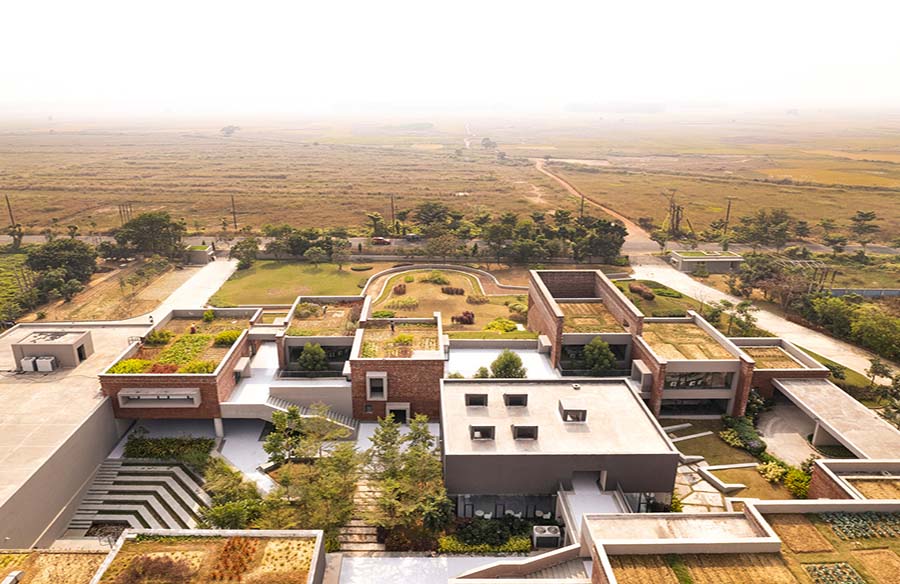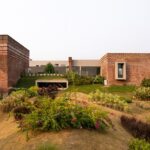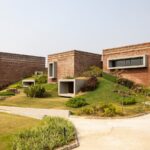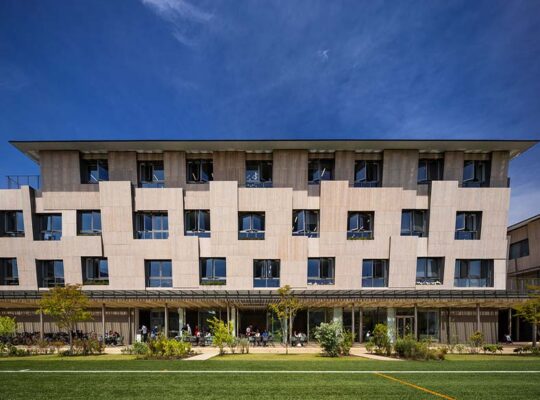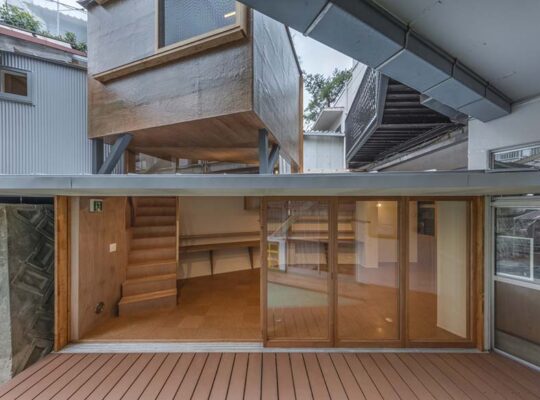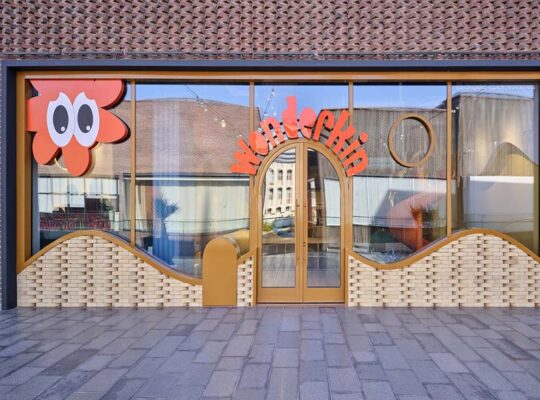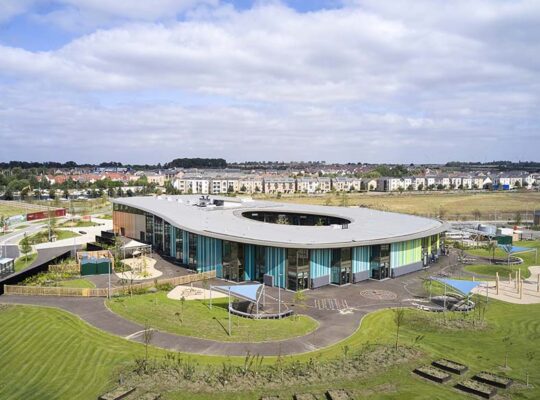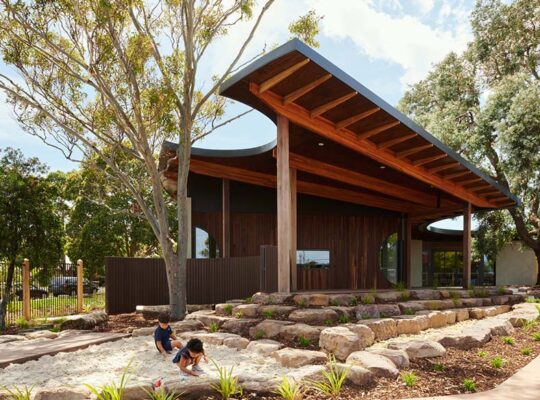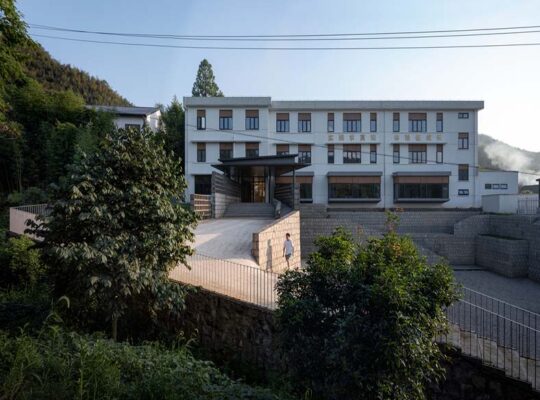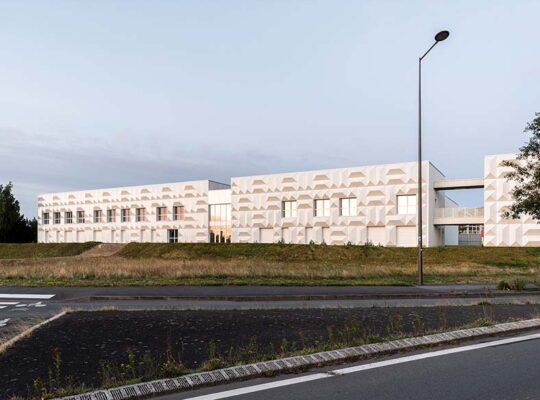Introduction
The Bandhan School of Business, crafted by Abin Design Studio (ADS), embodies a holistic approach to architecture, merging micro initiatives with enduring design principles. Rooted in a deep connection with the site, this architectural marvel celebrates the harmony between sky, water, and earth, weaving together traditional practices with contemporary vision.

Contextual Design Philosophy
At the heart of the design philosophy lies a profound respect for the surrounding landscape. The architecture harmonizes with the natural environment, refraining from imposing itself but rather framing the picturesque views. Masses and voids sculpted from the mounds create a dynamic interplay between built form and open space.
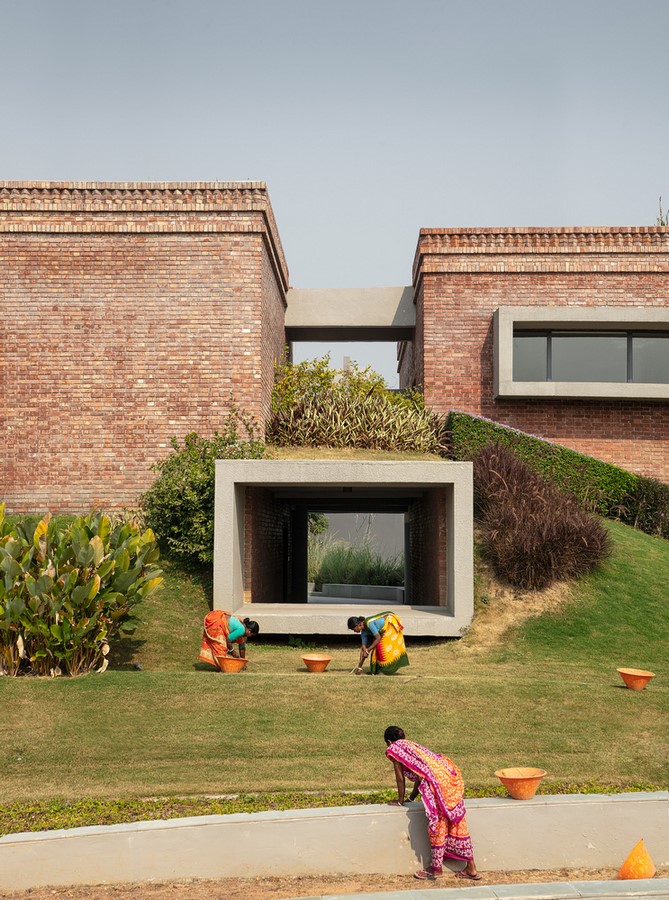
Inspired Campus Layout
Drawing inspiration from Tagore’s Bishwa Bharati University, the campus layout features individual blocks nestled amidst existing trees, evoking the serenity of a forest walk. This design not only encourages natural ventilation but also minimizes heat gain through strategic shading and opaque facades. Green roofs of varying heights add depth and hierarchy to the physical landscape.
Sustainable Construction
The structure showcases a fusion of local burnt-brick construction with integrated facade patterns, celebrating rustic textures and traditional craftsmanship. Clean lines and sleek forms serve as a canvas for showcasing handmade finishes, embedding a sense of heritage and authenticity into the architecture.
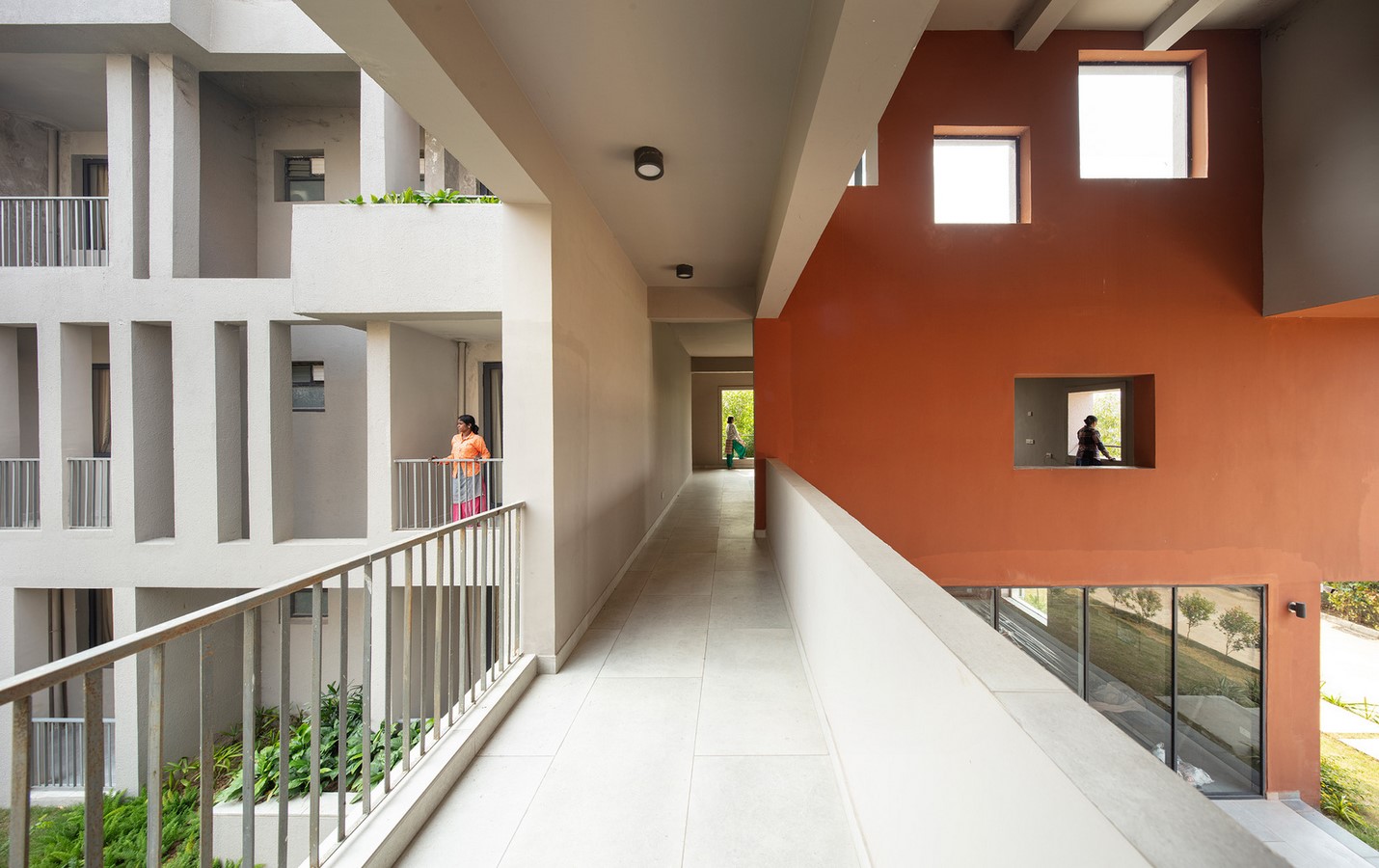
Social Engagement and Empowerment
ADS believes in architecture’s transformative power beyond its physical presence. By actively engaging with local authorities and communities, the studio enriches not only the built environment but also the lives of its users. The project exemplifies a commitment to social responsibility, fostering inclusivity and transparency in the design process.
Human-Centric Approach
Empowering local craftsmen and promoting traditional craftsmanship infuse the project with a human touch, creating spaces that resonate with the community’s heritage and culture. This approach not only anchors the project in its context but also fosters a sense of ownership and pride among stakeholders.
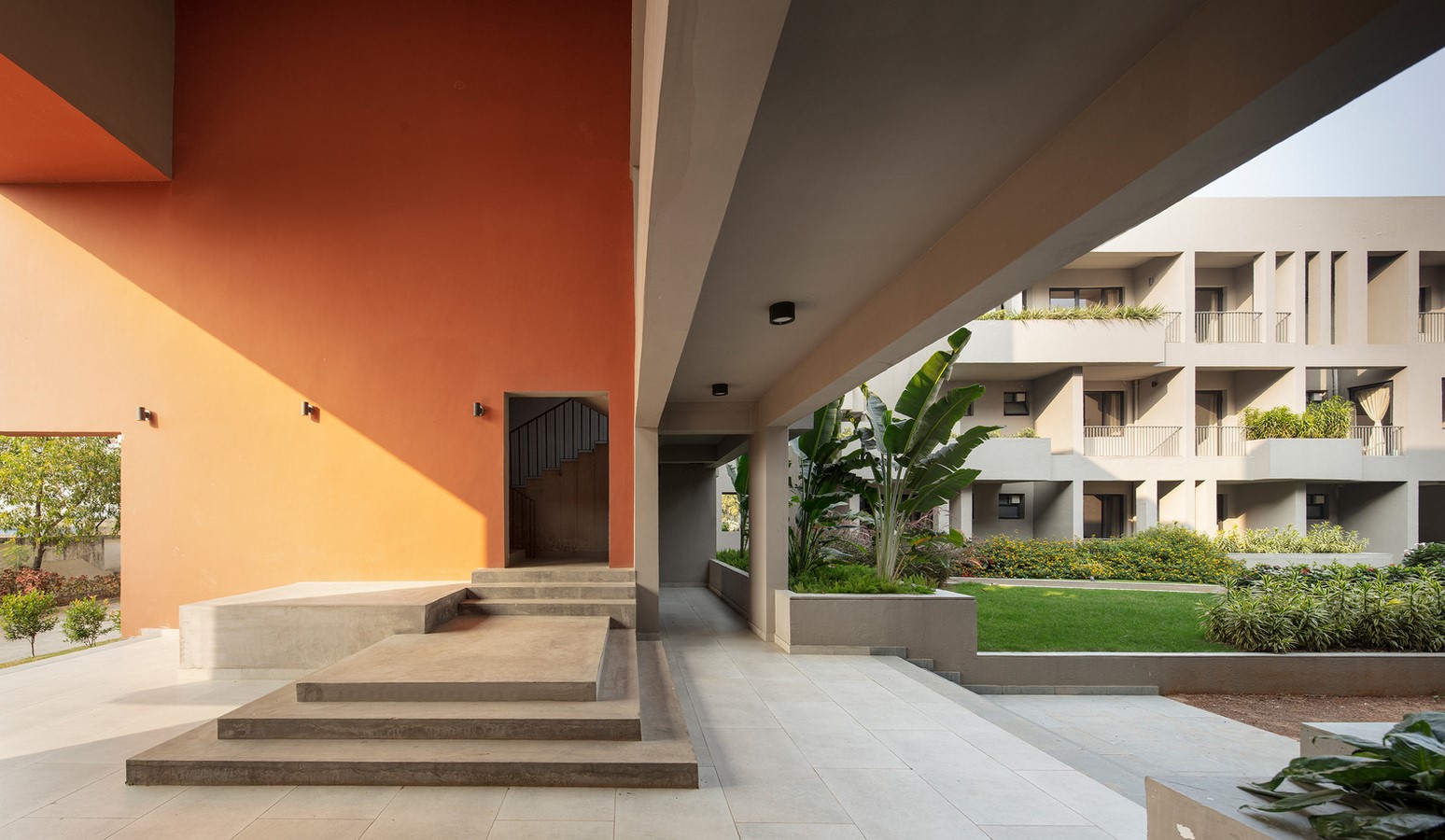
Sustainable Innovation
Incorporating contextual solutions rooted in indigenous methods, ADS pioneers sustainable design practices. By reimagining historic techniques through a modern lens, the project exemplifies a commitment to environmental stewardship and responsible urban development.
Conclusion
The Bandhan Residential School of Business stands as a testament to the transformative potential of architecture when rooted in context, sustainability, and social engagement. Through thoughtful design interventions and a deep appreciation for local traditions, ADS creates spaces that inspire, enrich, and endure for generations to come.
